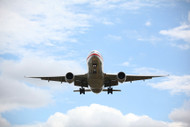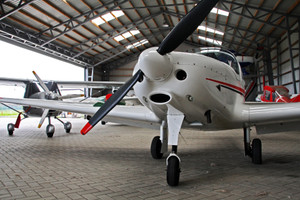ICAO's Carbon Offset and Reduction Scheme for International Aviation
By on Sep 20th 2016
In 2013, ICAO was mandated to present a proposal for a global market-based measure to manage aviation's carbon footprint.
The International Civil Aviation Organization (ICAO) is a specialized agency of the United Nations, established in 1944 to manage the administration and governance of The Convention on International Civil Aviation. Today, ICAO works with the 191 Member States and industry groups to reach consensus on international civil aviation Standards and Recommended Practices (SARPs) and policies for a safe, efficient, secure, economically-sustainable civil aviation sector. One particular area that ICAO is charged with mandating is aviation's impact on climate change. While international aviation is not included in the agreement reached by the United Nations Framework Convention on Climate Change (UNFCCC) in December 2015, managing aviation's climate change is an international issue, as the complexity of emissions from any singular flight might occur over several countries and the high seas.
CORSICA
The draft text for negotiating Carbon Offset and Reduction Scheme for International Aviation (CORSICA) was published on September 2, 2016. It will officially be presented and discussed when governments meet for the 39th Assembly of the International Civil Aviation Organization at the end of September.
The proposal doesn't call for States' immediate execution of CORSICA, but rather defines a voluntary -pilot implementation- period from 2021-2026, with mandatory participation for all eligible States starting 2027 and beyond.
So far, the International Air Transport Association (IATA) has expressed optimism for an agreement on CORSICA-an agreement which would be historical, according to Alexandre de Juniac, IATA's Director General and CEO:
"I am optimistic that we are on the brink of a historic agreement-a first for an industry sector at the global level. The aviation industry would have preferred a more ambitious timeline than is currently outlined in the draft text. However, what is most important is that the substance of the negotiating text will allow for meaningful management of aviation's carbon footprint. Airlines support it and urge governments to agree when they meet at ICAO."
IATA, the trade association for the world's airlines (and representing 83% of total air traffic), encourages governments to commit to voluntary participation early. They believe that the industry is ready for change, and that there isn't much reason for governments not to volunteer.
The 39th triennial assembly will be held at ICAO Headquarters in Montral from September 27 to October 7, 2016.
For more information:
http://www.icao.int/Meetings/a39/Pages/default.aspx
http://www.iata.org/pressroom/pr/Pages/2016-09-06-02.aspx







